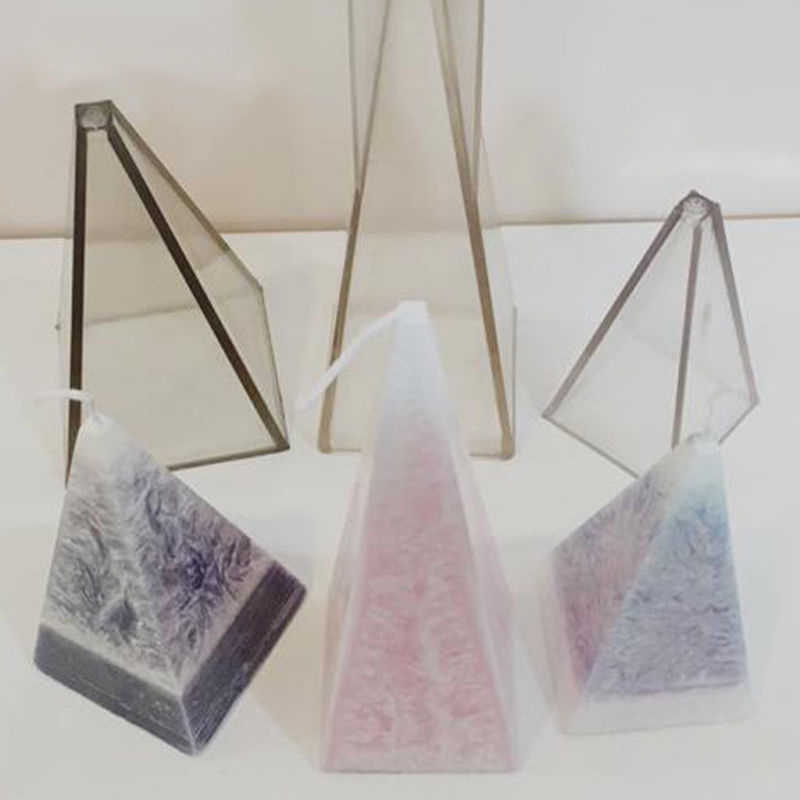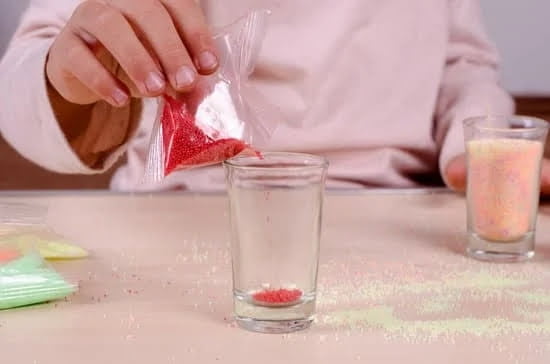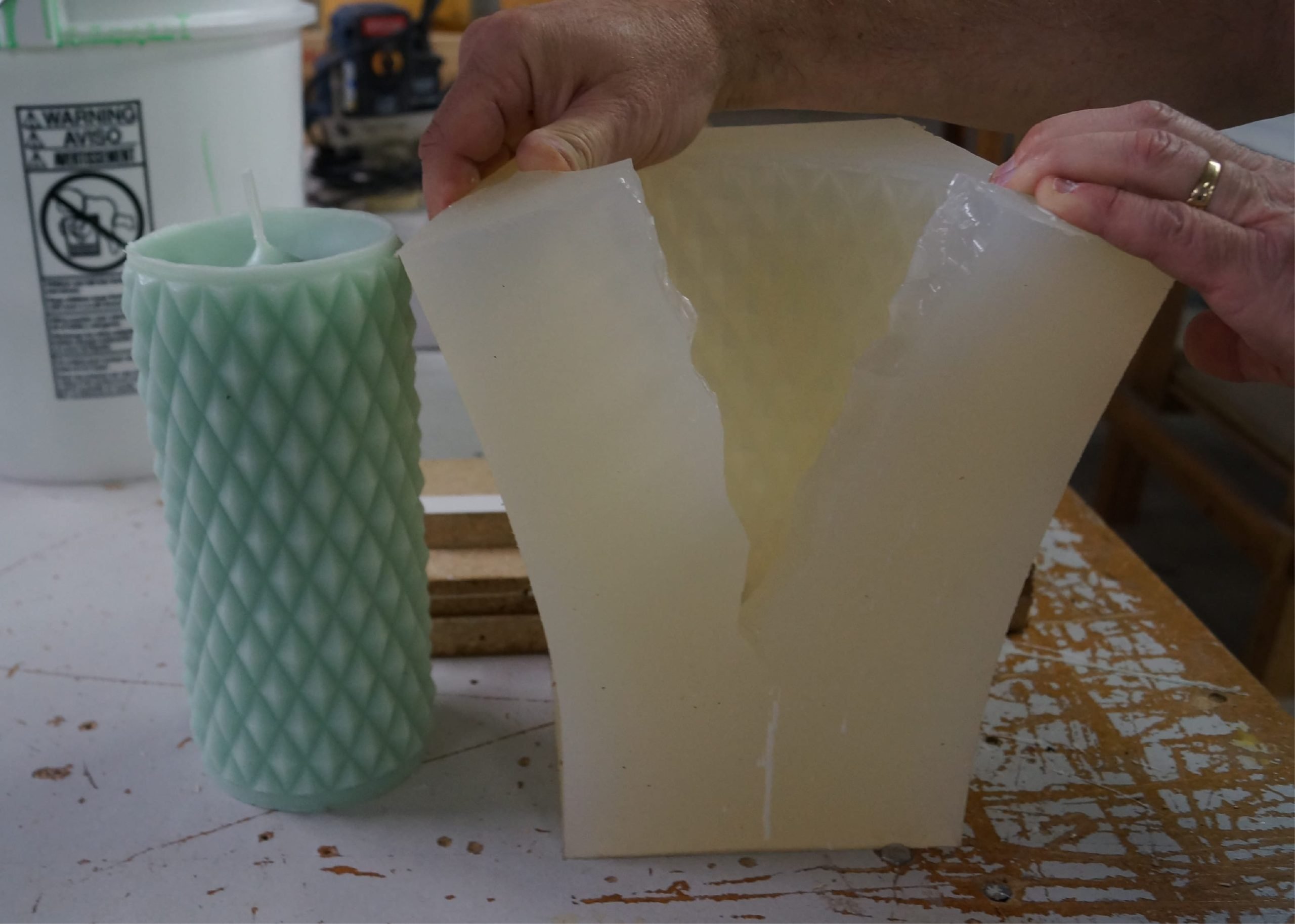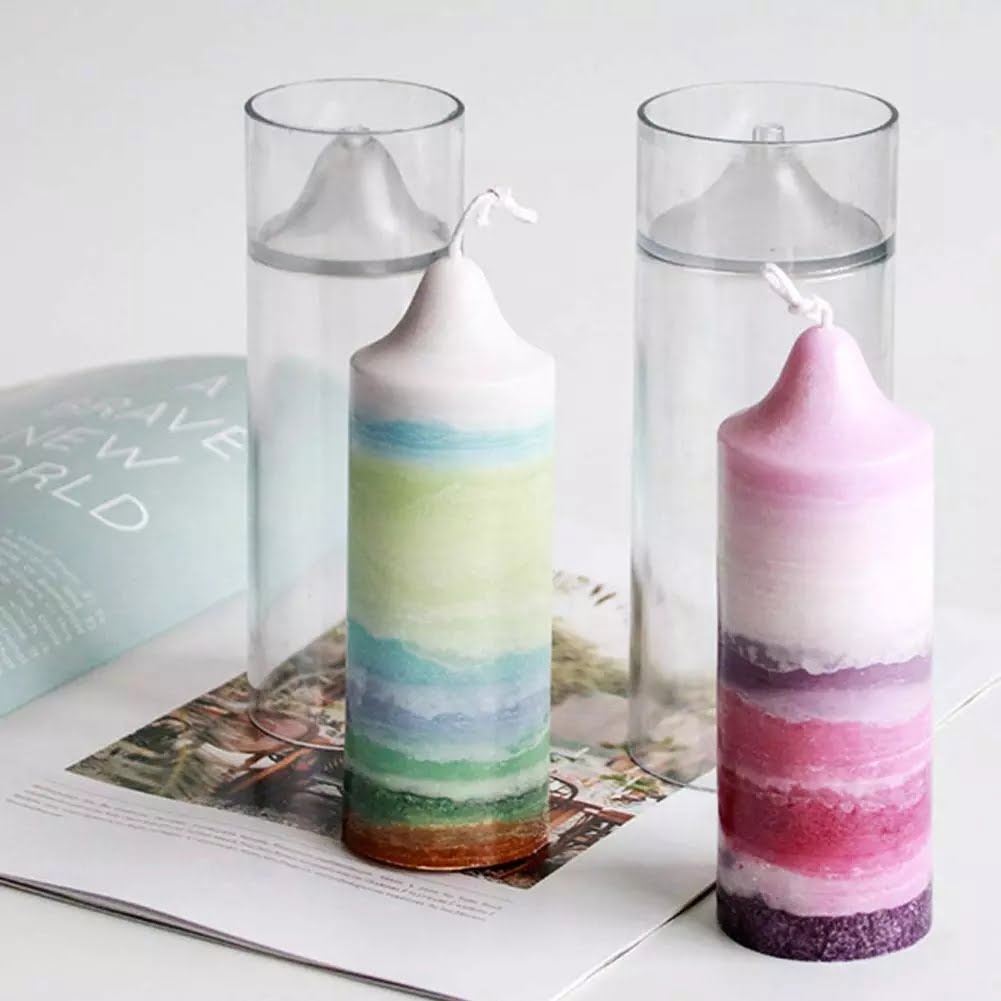Are you looking to add a personal touch to your home decor or create unique gifts for loved ones? Look no further than candle making designs at home. Whether you’re a beginner or experienced crafter, creating your own candles can be a rewarding and therapeutic hobby. In this article, we will explore the essential materials, techniques, and creative ideas for making beautiful candles in the comfort of your own home.
Candle making is an ancient art that has evolved over the years, with endless possibilities for creativity and design. From classic pillar candles to intricate shaped designs, there is no limit to what you can achieve with the right knowledge and tools. With the rise of DIY culture and sustainable living practices, more people are turning to homemade candles as an environmentally-friendly and customizable alternative to store-bought options.
In this comprehensive guide, we will delve into the essential materials and ingredients needed for candle making designs at home. We’ll also explore different types of candle making techniques, how to choose the right wax for your desired outcome, as well as creative ideas for adding fragrance and color to your homemade candles.
Whether you’re interested in creating simple soy wax votives or elaborate layered designs, we have all the tips and tricks to help you unleash your inner candle-making artist. So get ready to immerse yourself in the world of homemade candles and let your creativity shine.
Essential Materials and Ingredients for Candle Making Designs at Home
When it comes to creating beautiful candle making designs at home, it’s important to have the essential materials and ingredients on hand to ensure a successful and enjoyable experience. Here are some of the key items you’ll need to get started.
Wax
The most essential ingredient for candle making is, of course, wax. There are several different types of wax that you can use, including paraffin wax, soy wax, beeswax, and palm wax. Each type of wax has its own unique characteristics and melting points, so it’s important to choose the right one for your desired candle making designs.
Wicks
Wicks are another essential component for making candles. They come in various sizes and materials, such as cotton or wood. The size and material of the wick will determine how your candle burns, so it’s important to select the right wick for your specific candle making project.
Fragrances and Colors
To add extra flair to your homemade candles, you’ll also need fragrances and colors. There are countless options available when it comes to scents and colors for candles, allowing you to customize your creations to suit your preferences. From calming lavender scents to vibrant red hues, these additions can take your candle making designs to the next level.
In addition to these key ingredients, you’ll also need containers or molds for shaping your candles, a heat source for melting the wax (such as a double boiler or microwave), a thermometer to monitor the temperature of the wax, and various tools for mixing and pouring. By ensuring that you have all these essential materials on hand, you’ll be well-prepared to embark on your candle making journey from the comfort of your own home.
Different Types of Candle Making Techniques
When it comes to creating beautiful and unique candles at home, there are several different types of candle making techniques to explore. One popular technique is container candle making, which involves pouring melted wax into a container of your choice, such as a mason jar or glass votive holder. This method allows for endless creativity in terms of the container design and the potential for incorporating decorative elements like dried flowers or glitter.
Another common candle making technique is pillar candle making, where wax is molded and shaped into a solid pillar form. This technique requires the use of molds and can result in stunning, standalone candles that can be embellished with intricate designs and patterns. Additionally, you can also experiment with taper candle making, which involves dipping wicks repeatedly into melted wax to build up layers and create long, elegant candles.
For those interested in more advanced techniques, there is also the option of hand-rolling beeswax candles or experimenting with carved candle designs. Regardless of the technique you choose to explore, each offers its own set of creative possibilities for crafting beautiful homemade candles using various materials and methods.
Finally, an increasingly popular method gaining traction among crafters is soy wax candle making due to its environmental benefits and ease of use compared to traditional paraffin wax. By exploring different types of candle making techniques at home, you can elevate your DIY projects and create stunning custom candles that reflect your personal style and preferences.
Overall, mastering various candle making techniques opens up endless opportunities for creativity when it comes to designing unique candles at home. Whether you prefer container candles, pillars, tapers, or other advanced methods like hand-rolling or carving, each technique offers its own distinct benefits for creating custom candles that cater to your individual tastes and preferences.
Whether you’re a beginner just starting out or an experienced crafter looking to expand your skills in candle making designs at home, there’s always something new to discover within the realm of homemade candle crafting.
Choosing the Right Wax for Candle Making
When it comes to creating beautiful and unique candles at home, choosing the right wax is essential. The type of wax you select will not only determine the quality of your candles but also their burn time, fragrance retention, and overall appearance. There are several options available for candle making, each with its own set of characteristics and benefits.
Paraffin Wax
Paraffin wax is one of the most commonly used waxes for candle making designs at home. It is easy to work with, has a great scent throw, and provides a smooth and glossy finish to the candles. However, it is worth noting that paraffin wax is derived from petroleum, so some individuals prefer to use alternative options for environmental reasons.
Soy Wax
For those who are looking for a more environmentally-friendly option, soy wax is an excellent choice. Made from soybean oil, this type of wax burns cleaner and slower than paraffin wax. It also has a good scent throw and can hold onto fragrances well. Additionally, soy wax is biodegradable and easy to clean up with soap and water.
Beeswax
Beeswax is another natural option for candle making. It emits a subtle honey-like aroma when burned and has a longer burn time compared to other types of wax. Beeswax candles have a beautiful natural color and texture, making them a popular choice for those who appreciate organic materials in their homes.
Choosing the right wax for your homemade candles will depend on your personal preferences as well as your desired candle making designs. Whether you opt for paraffin, soy, beeswax or another type of wax altogether, experimenting with different options can lead to discovering the perfect combination for your unique creations.
Creative Candle Making Designs and Ideas
When it comes to creating homemade candles, there are endless possibilities for designs and ideas. One popular design is the layered candle, where different colored waxes are poured in layers to create a beautiful gradient effect. You can also use various molds to create unique shapes such as hearts, stars, or even animals. Another creative idea is to embed objects like dried flowers, herbs, or decorative stones into your candles for a unique and artistic touch.
For those who enjoy a more rustic and natural look, incorporating natural elements into your candle making designs can be a great option. Using soy wax and adding in essential oils or botanical extracts not only adds fragrance but also allows you to create organic and environmentally friendly candles. Additionally, using recycled containers such as mason jars or vintage teacups can add a charming and personalized touch to your homemade candles.
For those who prefer a more modern and sleek look, experimenting with different types of wax such as beeswax or paraffin can offer unique design opportunities. Beeswax creates a warm glow and has a natural honey scent while paraffin allows for vibrant colors and smooth textures. Adding metallic accents or using geometric molds can also result in striking contemporary candle designs.
Overall, the key to successful candle making designs at home is experimentation and creativity. Whether you prefer classic, rustic, or modern styles, there are numerous techniques and ideas that you can explore to create your own one-of-a-kind candles.
| Candle Making Design | Idea |
|---|---|
| Layered Candles | Create beautiful gradient effects by pouring different colored waxes in layers. |
| Embedded Objects | Add dried flowers, herbs, or decorative stones for a unique artistic touch. |
| Natural Elements | Use soy wax and essential oils for organic candles; recycle containers for eco-friendly options. |
| Modern & Sleek | Experiment with beeswax or paraffin; add metallic accents or use geometric molds for contemporary designs. |
Adding Fragrance and Color to Your Homemade Candles
When it comes to candle making designs at home, adding fragrance and color can take your homemade candles to the next level. There are several ways you can personalize your candles with different scents and colors, making them not only beautiful but also aromatic. Here are some creative ideas for adding fragrance and color to your homemade candles:
- Using essential oils: Adding essential oils to your melted wax can give your candles a pleasant aroma. From calming lavender to uplifting citrus scents, there are endless options to choose from.
- Experimenting with natural ingredients: You can also consider using natural ingredients such as dried flowers, herbs, or spices to add both color and scent to your candles. For example, dried rose petals can add a lovely light pink hue and a subtle floral fragrance to your homemade candles.
- Adding candle dyes: If you prefer more vibrant and uniform colors for your candles, you can use specially formulated candle dyes. These dyes come in various shades and are designed specifically for use in candle making.
In addition to the creative aspect of adding fragrance and color to your homemade candles, it’s important to consider safety when working with these ingredients. Always follow proper guidelines when handling essential oils, natural ingredients, or candle dyes to ensure a safe and enjoyable candle-making experience.
Lastly, remember that the amount of fragrance or colorant you add will depend on personal preference and the size of the candle. Be sure to experiment with different combinations until you achieve the desired fragrance strength and color intensity for your homemade candles. With a bit of creativity and experimentation, you can create beautifully scented and colored candles that reflect your unique style.
Safety Tips for Making Candles at Home
When it comes to making candles at home, safety should always be a top priority. Here are some important safety tips to keep in mind when creating your own candle making designs at home:
- Choose a well-ventilated area: It’s important to work in a well-ventilated space when making candles, as the fumes from the melting wax and fragrance oils can be harmful if inhaled. Open windows or use a fan to ensure proper ventilation.
- Use proper equipment: Always use the appropriate equipment when making candles, such as a double boiler for melting wax, a thermometer to monitor temperatures, and heat-resistant containers. This will help prevent accidents and injuries.
- Keep flammable items away: Be sure to keep flammable items such as paper towels, fabric, or other materials away from your candle making area. This will reduce the risk of accidental fires.
In addition to these general safety tips, it’s also essential to consider the specific safety guidelines for the type of wax and fragrance oils you are using. Some waxes and oils require special handling or have specific safety considerations, so be sure to read and follow all instructions and warnings provided by the manufacturers.
By following these safety tips, you can ensure that your candle making experience is not only creative and fun but also safe for you and those around you. Enjoy exploring different candle making designs at home while keeping safety at the forefront of your process.
Steps to Properly Store and Use Your Homemade Candles
When it comes to making your own candles at home, the process doesn’t end once the candles are made. Proper storage and use of your homemade candles is crucial to ensure that they last long and burn safely. Here are some steps to properly store and use your homemade candles.
First and foremost, it’s important to store your homemade candles in a cool, dry place away from direct sunlight. Exposure to heat can cause the candles to warp or lose their shape, while exposure to sunlight can cause the colors to fade. Storing them in a closet or drawer is ideal.
Another important aspect of storing homemade candles is to keep them away from strong odors or scents. Candles can absorb surrounding odors, so it’s best to store them in airtight containers or plastic bags if possible.
When using your homemade candles, always trim the wick to about 1/4 inch before lighting them. This helps prevent the flame from getting too large and reduces smoking and soot formation. Additionally, make sure to place the candle on a stable, heat-resistant surface away from drafts and flammable materials.
Properly storing and using your homemade candles not only ensures their longevity but also contributes to a safe and enjoyable candle-burning experience. By following these simple steps, you can continue to enjoy the fruits of your candle making designs at home for months to come.
| Storage | Homemade Candles |
|---|---|
| Cool, dry place | Away from direct sunlight |
| Away from strong odors | Trim wick before lighting |
| Stable surface | Away from flammable materials |
Conclusion
In conclusion, candle making at home can be a fulfilling and rewarding hobby for anyone interested in creating their own unique designs and scents. With the right materials, techniques, and safety precautions, anyone can enjoy the art of candle making from the comfort of their own home. Whether you choose to make simple votive candles or experiment with more complex designs, the possibilities for creativity are endless.
Experimenting with different types of wax, fragrances, and colors allows for a wide range of options when it comes to creating your own personalized candles. From traditional paraffin wax to eco-friendly soy wax, there are numerous choices available to suit your preferences. Adding essential oils or fragrance oils can further enhance your homemade candles, making them not only visually appealing but also beautifully scented.
To ensure a safe and enjoyable experience when making candles at home, it’s important to follow the proper guidelines for handling hot wax and using sharp tools. Additionally, taking the time to properly store and use your finished products will help maintain their quality over time.
By keeping these safety tips in mind and incorporating creative techniques into your designs, you can truly enjoy the art of candle making at home. So why not get started today on creating your own beautiful candle making designs at home?

Welcome to my candle making blog! In this blog, I will be sharing my tips and tricks for making candles. I will also be sharing some of my favorite recipes.





